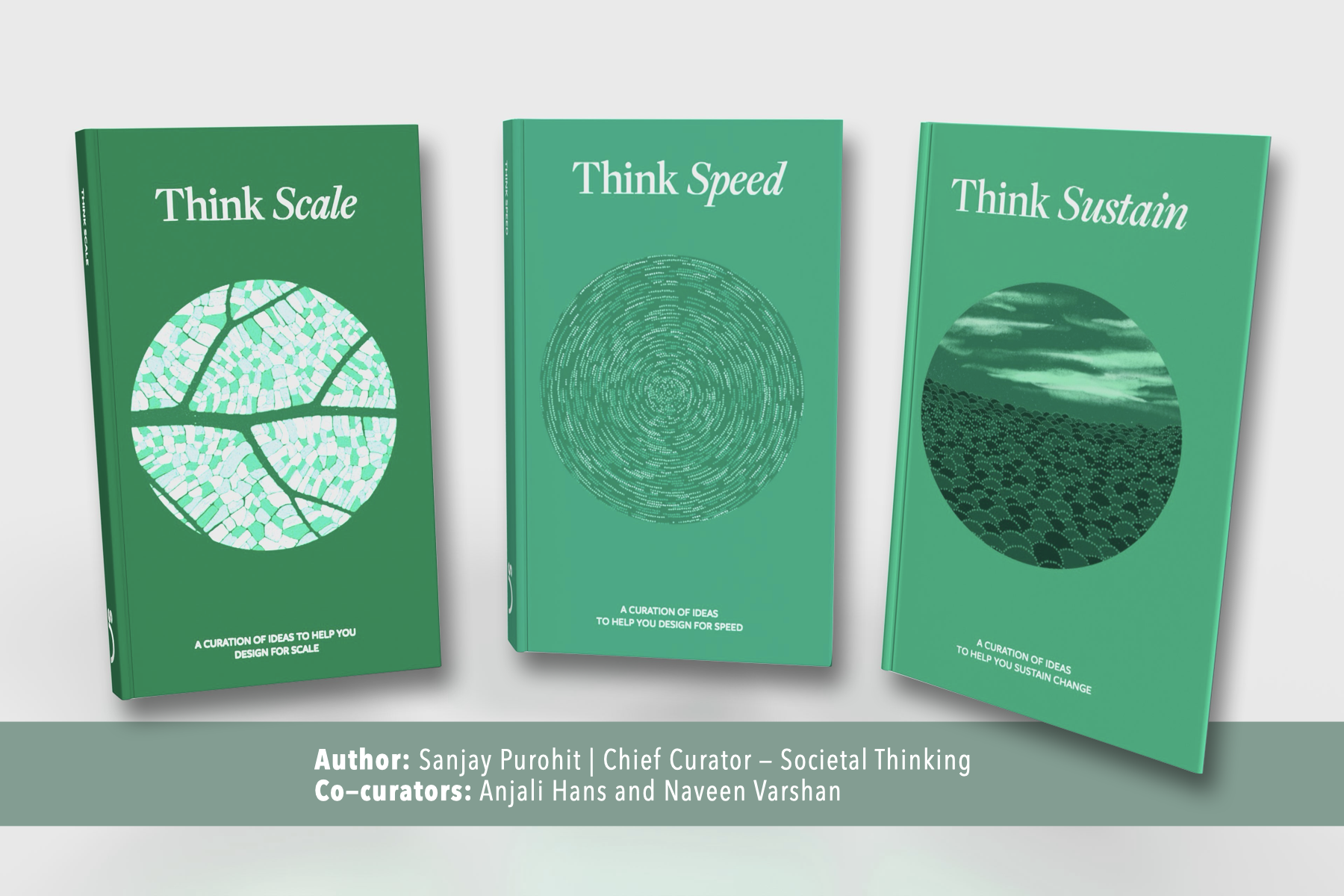‘Do we have a choice?’ asked Harish Hande, co-founder of SELCO, as he traced his journey of climate action. We were hosting a panel discussion ‘Unbundling Climate Action’ with change leaders who have been working towards a safe and sustainable future. It was a resounding question – especially as we all become increasingly aware of our short window of opportunity to act on a problem as large, complex and dynamic as climate change.
‘Unbundling Climate Action’ focused on three aspects of climate action – mitigation, adaptation and resilience. It offered us an opportunity to connect deeply with change leaders and understand the problem and the future they are reimagining. Together, we co-explored their journeys and the pivotal moments in their lives that led them down the path of climate action. While Sneha Singh, General Manager of The Good Food Institute India, has always felt close to the environment and can’t imagine being anywhere else, Rajesh Sundaresan, co-founder of Carbon Impact Capital was drawn to it because of his kids. Societal Thinking’s KL Mukesh found in Claude Alvares’s ‘Homo Faber’ a gateway to the world of environmentalism. Later, when Mukesh volunteered with social enterprises working around agriculture and healthcare, he realised climate underpinned not only every problem but also needed to be factored into the solutions.
Mitigation, adaptation and resilience came up as big words during our discussion, not so much because they occupy space in the current climate narrative but because they are, at the end of the day, words. Harish pointed out that while working with communities on ground, it’s very hard to draw a distinction between mitigation and adaptation and often, mitigation is given more importance than adaptation. Harish believes today’s adaptation is tomorrow’s mitigation. If we are able to prioritise adaptation in the Global South, where communities are disproportionately vulnerable to the effects of climate change, we will be able to move towards greater resilience in healthcare and livelihoods. Rajesh hopes to hear more of ‘climate restoration’ in conversation – while mitigation and adaptation tell us we need to fix what’s broken, restoration envisions a world where these very ‘breaks’ can be avoided.
How do we, then, address the symptoms of climate change as they crop up as well as the root cause of the problem? How do we do so at scale, with speed and sustainably? Our panelists gave expansive ideas – from bridging the gap between institutional and individual responsibility, thinking community-first and empowering with data to ensuring a resilient food system and better policy-making. On the flip side, they mentioned the barriers we face, be it lack of funding, awareness, systems to support community action and more. Zooming in on funding, Rajesh mentioned there are various estimates of what we need to spend to reach net-zero – anywhere between 3 to 9 trillion USD a year! And, although it sounds like a very big number, it isn’t impossible when thought of as relative to GDPs and the capital available in the world. However, right now, we’re spending about 500 to 600 billion USD on net-zero – a small fraction of what’s needed. Rajesh adds that the costs will increase in the future and the time to act is now. Harish added that we need a public good approach with capital and move away from the notion that private capital can solve climate change. He adds that it’s important to have patient- and risk-capital to work towards a common longer-term goal of climate resilience.
This year’s World Environment Day was a reminder that climate change is knocking at all our doors (or, as Greta Thunberg said, “I want you to act as if the house is on fire because it is”). Despite doomsday statistics and barriers to climate action across the globe, what struck me most about our conversation was the optimism of change leaders. As we explore ways of enabling exponential climate action, I am reminded of what Rebecca Solnit wrote, “We need a large-scale change in perspective. To reframe climate change as an opportunity – a chance to rethink who we are and what we desire.”
 Back
Back


